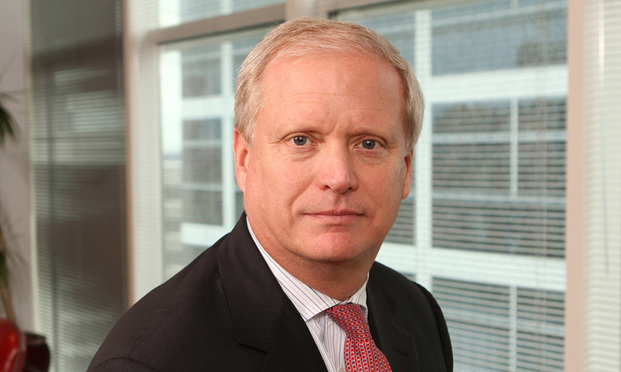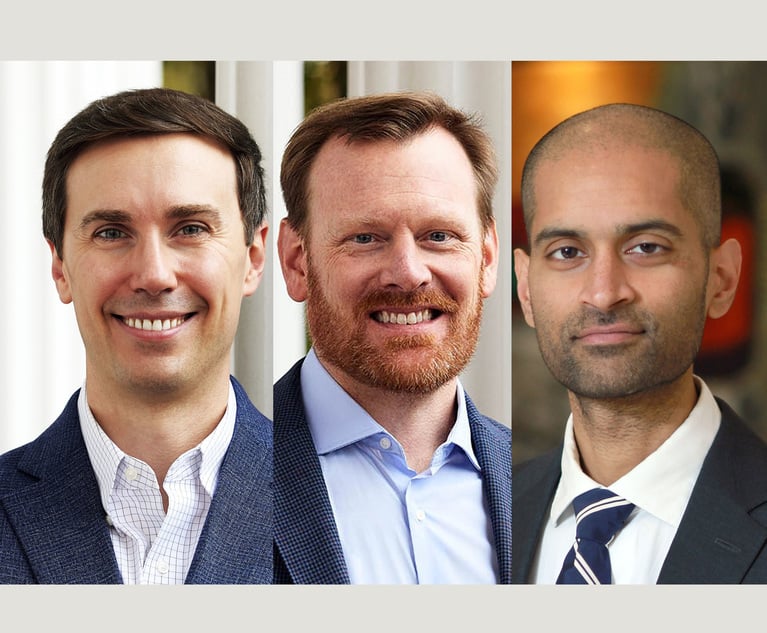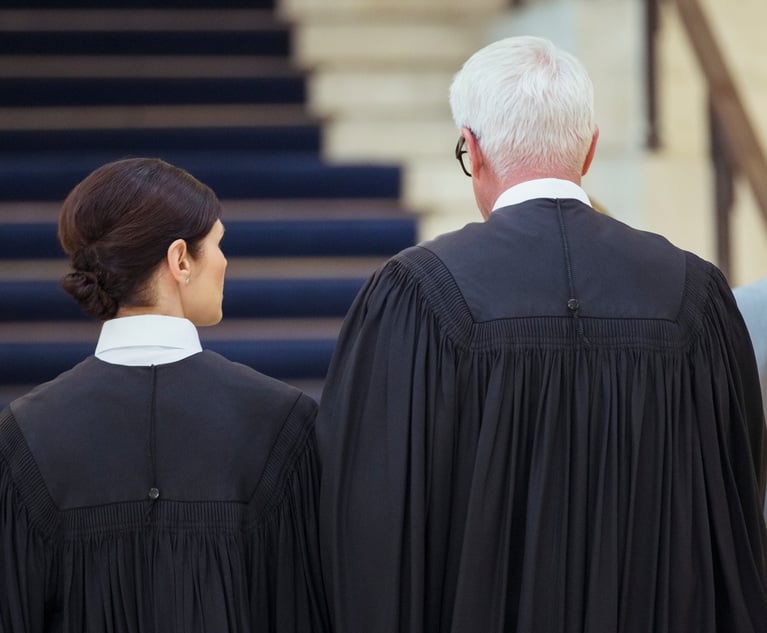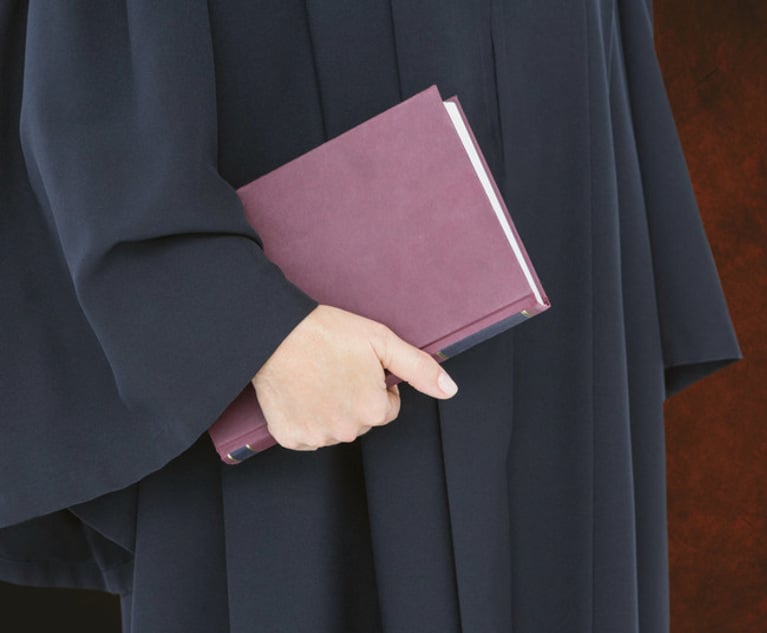Distinguished Leader: Mike McGlamry
"Relatively speaking, MDLs and their thousands of consolidated and incorporated actions take up a small percentage of our judicial resources and yet handle an enormous amount of litigation, cases and issues in a very prudent and efficient manner."
June 19, 2019 at 02:00 PM
5 minute read
 Michael L. McGlamry, Pope, McGlamry, Atlanta (Photo: John Disney/ALM)
Michael L. McGlamry, Pope, McGlamry, Atlanta (Photo: John Disney/ALM)
Mike McGlamry of Pope McGlamry has served in leadership roles in several national consolidated cases across the country.
A case against Wright Medical Technology Inc. over a hip implant product, McGlamry was co-lead counsel, negotiating and administrating three rounds of settlements that totaled approximately $340 million.
He was on the plaintiffs' executive committee for a case over a different hip implant product, made by Stryker, that led to a multimillion dollar national settlement.
McGlamry also has served on the plaintiffs' steering committee for the National Football League Players' Concussion Injury Litigation.
You played college football for Wake Forest and, decades later, represented NFL players in concussion litigation. Can tackle football be made safe enough for its players?
My short answer is that it probably cannot be made safe, and intuitively it only makes sense, as we are also seeing this same focus on combat concussive injuries. Although I am a huge football fan (primarily college), my experience in the NFL litigation has shown me that a significant number of former players do suffer from neurocognitive and psychiatric illnesses at a greater rate than the average population. Most of these players' issues were not covered in the NFL settlement, and the few players who can demonstrate what should be qualifying diagnoses have faced hurdles making it almost impossible for them to qualify under the NFL settlement. At least the litigation brought the issue to light and out from under the NFL's thumb and generated significant research into these issues. To me, the result of this research, albeit let's be careful who is doing it and why, and the data generated is our best answer to your question. There is no way to make the game completely safe and, with players getting bigger, stronger and faster and equipment evolving that allows for greater speed and mobility, it's only going to be harder to accomplish. Advances in the rules of play, concussion and return to play protocols are good but can only do so much. In the short term, the keys will be parents and insurance. I expect that more and more parents will keep their kids out of football and insurance carriers will be reluctant to bind coverage unless at a very high rate.
What is a common misconception about multidistrict litigation?
In my experience, there are two common misconceptions about MDLs. First is that they are easy for plaintiffs and always result in payments to plaintiffs at little or no risk or expense. Nothing could be further from the truth. These litigations are typically hard fought, take many years to resolve, cost millions to prosecute and are difficult to settle. And many end in dismissals, adverse legal evidentiary or Daubert rulings or worse. The other misconception is that MDLs are clogging up our judicial system with a disproportionate percentage of all civil cases filed. This is more like a tort reform mantra than truth. It is true that the total number of individual actions that make up all of the MDLs is a huge number, but that is not the point. All of those individual cases get consolidated into an MDL. There are only 207 MDLs active now across only 47 federal districts (out of a total of 194) and only before 164 federal judges (46 of these are senior Judges) out of nearly 3,000 federal district judges. In addition, the number of motions for centralization to the JPML (the federal bench that determines if and where regarding MDLs) has gone down the last couple of years. So, relatively speaking, MDLs and their thousands of consolidated and incorporated actions take up a small percentage of our judicial resources and yet handle an enormous amount of litigation, cases and issues in a very prudent and efficient manner.
Who was one of your mentors, and what did you learn from that person?
Although I could name my dad (I worked with him for almost 15 years here) or my old friend Tom Carlock (who taught me that litigators must have thick skin), this is a pretty clear choice—Neal Pope. For 30 years now, I have had the good fortune to see Neal in action, and it has been a pleasure and quite the learning experience. As a Marines officer, Neal brought chain of command and esprit de corps to the plaintiffs' trial practice (the closest thing for me was playing college football). Neal has always advocated for a team approach, and that is unique in this trial lawyer world. In addition, he led and still leads us in a very risky, very uncertain practice and instills focus, energy, perfection, courage under fire and the confidence to manage the ebb and flow of a plaintiffs trial practice. He has been the ultimate leader for me, and I can only hope that I have absorbed even a fraction of what he has had to offer us. I believe I am a leader now because Neal mentored me and urged and expected me to lead. I owe a lot to him as my mentor and otherwise.
This content has been archived. It is available through our partners, LexisNexis® and Bloomberg Law.
To view this content, please continue to their sites.
Not a Lexis Subscriber?
Subscribe Now
Not a Bloomberg Law Subscriber?
Subscribe Now
NOT FOR REPRINT
© 2025 ALM Global, LLC, All Rights Reserved. Request academic re-use from www.copyright.com. All other uses, submit a request to [email protected]. For more information visit Asset & Logo Licensing.
You Might Like
View All
Spalding Jurors Return $12M Verdict Against State Farm Insurance Client
10 minute read

Trending Stories
- 1'It's Not Going to Be Pretty': PayPal, Capital One Face Novel Class Actions Over 'Poaching' Commissions Owed Influencers
- 211th Circuit Rejects Trump's Emergency Request as DOJ Prepares to Release Special Counsel's Final Report
- 3Supreme Court Takes Up Challenge to ACA Task Force
- 4'Tragedy of Unspeakable Proportions:' Could Edison, DWP, Face Lawsuits Over LA Wildfires?
- 5Meta Pulls Plug on DEI Programs
Who Got The Work
Michael G. Bongiorno, Andrew Scott Dulberg and Elizabeth E. Driscoll from Wilmer Cutler Pickering Hale and Dorr have stepped in to represent Symbotic Inc., an A.I.-enabled technology platform that focuses on increasing supply chain efficiency, and other defendants in a pending shareholder derivative lawsuit. The case, filed Oct. 2 in Massachusetts District Court by the Brown Law Firm on behalf of Stephen Austen, accuses certain officers and directors of misleading investors in regard to Symbotic's potential for margin growth by failing to disclose that the company was not equipped to timely deploy its systems or manage expenses through project delays. The case, assigned to U.S. District Judge Nathaniel M. Gorton, is 1:24-cv-12522, Austen v. Cohen et al.
Who Got The Work
Edmund Polubinski and Marie Killmond of Davis Polk & Wardwell have entered appearances for data platform software development company MongoDB and other defendants in a pending shareholder derivative lawsuit. The action, filed Oct. 7 in New York Southern District Court by the Brown Law Firm, accuses the company's directors and/or officers of falsely expressing confidence in the company’s restructuring of its sales incentive plan and downplaying the severity of decreases in its upfront commitments. The case is 1:24-cv-07594, Roy v. Ittycheria et al.
Who Got The Work
Amy O. Bruchs and Kurt F. Ellison of Michael Best & Friedrich have entered appearances for Epic Systems Corp. in a pending employment discrimination lawsuit. The suit was filed Sept. 7 in Wisconsin Western District Court by Levine Eisberner LLC and Siri & Glimstad on behalf of a project manager who claims that he was wrongfully terminated after applying for a religious exemption to the defendant's COVID-19 vaccine mandate. The case, assigned to U.S. Magistrate Judge Anita Marie Boor, is 3:24-cv-00630, Secker, Nathan v. Epic Systems Corporation.
Who Got The Work
David X. Sullivan, Thomas J. Finn and Gregory A. Hall from McCarter & English have entered appearances for Sunrun Installation Services in a pending civil rights lawsuit. The complaint was filed Sept. 4 in Connecticut District Court by attorney Robert M. Berke on behalf of former employee George Edward Steins, who was arrested and charged with employing an unregistered home improvement salesperson. The complaint alleges that had Sunrun informed the Connecticut Department of Consumer Protection that the plaintiff's employment had ended in 2017 and that he no longer held Sunrun's home improvement contractor license, he would not have been hit with charges, which were dismissed in May 2024. The case, assigned to U.S. District Judge Jeffrey A. Meyer, is 3:24-cv-01423, Steins v. Sunrun, Inc. et al.
Who Got The Work
Greenberg Traurig shareholder Joshua L. Raskin has entered an appearance for boohoo.com UK Ltd. in a pending patent infringement lawsuit. The suit, filed Sept. 3 in Texas Eastern District Court by Rozier Hardt McDonough on behalf of Alto Dynamics, asserts five patents related to an online shopping platform. The case, assigned to U.S. District Judge Rodney Gilstrap, is 2:24-cv-00719, Alto Dynamics, LLC v. boohoo.com UK Limited.
Featured Firms
Law Offices of Gary Martin Hays & Associates, P.C.
(470) 294-1674
Law Offices of Mark E. Salomone
(857) 444-6468
Smith & Hassler
(713) 739-1250







